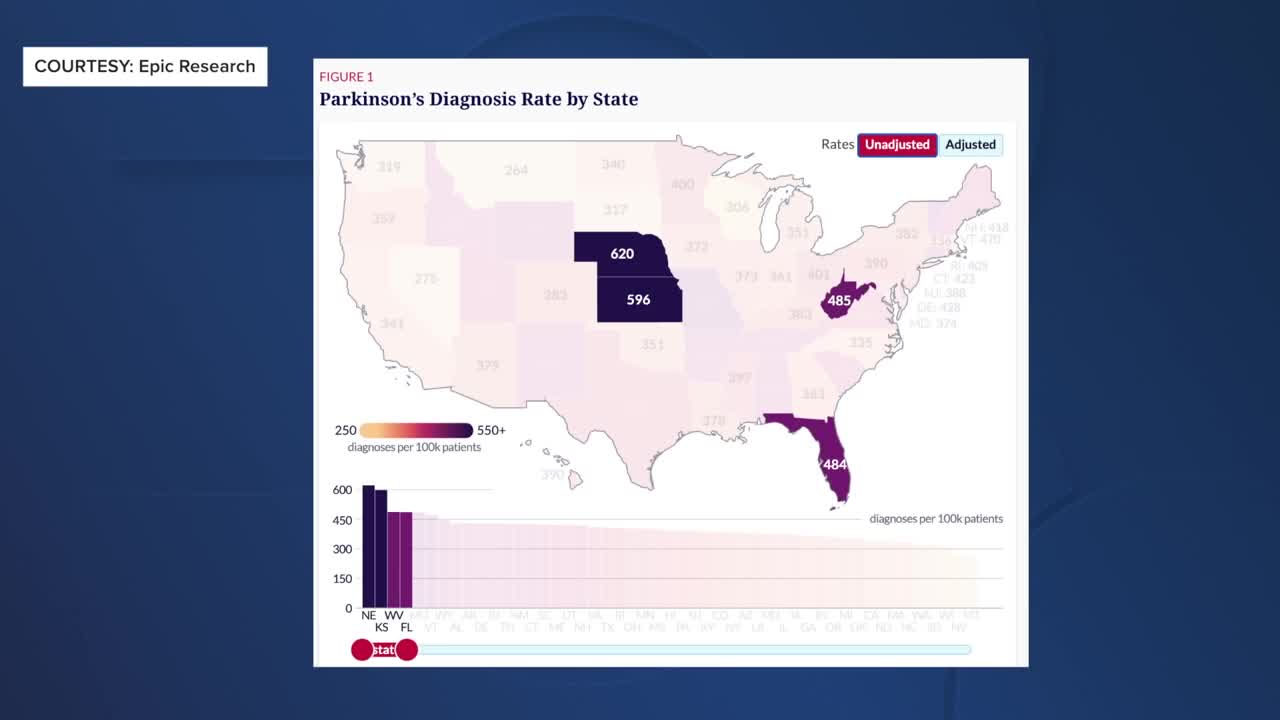Nebraska has the highest rate of Parkinson's disease in the country, according to a dual study done by Epic Research with local scientists pointing to the state's agricultural heritage as a significant contributing factor. Now, scientists are using these concerning statistics as an opportunity to develop breakthrough treatments.
The study found that 620 out of 100,000 people in Nebraska are diagnosed with Parkinson's disease, the highest rate of any state. Kansas has the second-highest rate.
Dr. Howard Gendelman, co-director of the Center for Neurodegenerative Disorders at the University of Nebraska Medical Center, said environmental factors in agricultural areas are likely driving the high incidence rates.
"We believe that these high incidences are linked to environmental factors, and that is particular in agricultural areas, which most of the research points to pesticides like atrazine and manganese, amongst others," Gendelman said.
However, pesticides and herbicides aren't the only factors. Genetics also plays a large role in whether a person will develop Parkinson's symptoms.
Mike Redmon, who was diagnosed with Parkinson's 16 years ago and serves on the board of Parkinson's Nebraska, underwent deep-brain stimulation surgery four months ago to help stimulate nerve cells in his brain.
"They go into your head and they put a rod down on each side of your brain, and then they put an electrical charge to it. And it kind of makes a connection from your brain to your extremities, so I tell you what, it was a life changer for me," Redmon said.
Redmon emphasized the importance of early intervention for those showing symptoms.
"The best thing you can do if you're showing signs is get in and see a neurologist as soon as possible, preferably a movement disorder specialist. And get ahead of it, uh, the longer you sit with it untreated, the worse you're gonna get faster," Redmon said.
Researchers at UNMC are now working with farmers in rural Nebraska to find advancements in treatment and medicines, turning the state's high incidence rate into an opportunity for medical breakthroughs.
"We're also taking advantage of where we are. We're in an agricultural setting and not only saying, oh my goodness, you're at higher risk for Parkinson's, but can we work together and develop new medicines," Gendelman said.
Dr. Gandelman’s team is isolating components of breast milk and colostrum to identify factors that promote neural development and may slow or reverse Parkinson’s disease
"We became interested in whether components of breast milk and colostrum—currently high-demand nutritional products—contain factors that influence nervous system development. Working with farmers near Omaha, we’re isolating those ingredients to see if they help brain development in children and whether they could be repurposed to treat neurodegenerative diseases like Parkinson’s," Gendelman said.
Nebraska was the first state to create a Parkinson's disease registry to track incidents and causes, which could also contribute to why more cases are documented in Nebraska compared to other states.
This story was reported on-air by a journalist and has been converted to this platform with the assistance of AI. Our editorial team verifies all reporting on all platforms for fairness and accuracy.
Download our apps today for all of our latest coverage.
Get the latest news and weather delivered straight to your inbox.




